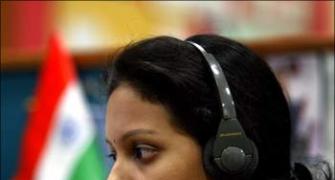 The sixth economic census, set to take off next year, will provide the country with a National Business Register for the first time, containing the details of every business establishment in the country.
The sixth economic census, set to take off next year, will provide the country with a National Business Register for the first time, containing the details of every business establishment in the country.
The creation and maintenance of a business register and directory are expected to be an economic data framework for various needed statistical surveys, including the Annual Survey of Industries and others of the National Sample Survey Organisation.
Currently, a fairly reasonable database exists for the agricultural sector, while much is lacking for the non-agricultural ones, particularly services.
The move to create a directory will particularly benefit the latter. For, the services sector, contributing 62.5 per cent to the country's gross domestic product, does not have a comprehensive data bank.
The national accounts significantly understates the sector, even as it is the major contributor.
"What we are trying to introduce this time is create a national business directory or register which will have details of all business enterprises.
"The sector which will benefit most from such a thing is the services sector, which does not have such a data framework," said S K Das, director-general, Central Statistical Organisation, under the ministry of statistics and programme implementation.
The business register is to keep an account of all business establishments with a workforce of 10 or more people -- addresses, sectors, turnovers, number employed, et. al.
The move is similar to that taken for the National Population Census 2010-11, under the ministry of home affairs, which will also collect data for a National Population Register.
Just as the NPR will record the name and address of every individual in the country, the NBR will have a record of every business establishment in the country.
Hitch: Qualified personnel
An attempt was made during the previous Economic Census in 2005 to create a directory or register of business enterprises, but it could not succeed due to gaps in data collection during the operations.
"The last time (in 2005) we tried to make such a register, we did not have enough qualified personnel to have a comprehensive data base. There were a lot of gaps and it could not succeed. This time we are trying harder," said Das.
The major hurdle for Mospi continues to be an acute shortage in human resources, which might mar the initiative during the sixth economic census as well.
Most of the data collection for the population census, supposedly the most reliable one in India, is carried out by school teachers. However a Supreme Court directive prevents the use of school teachers for other census operations.
"The best people to collect data for any census are the school teachers and for our census, we cannot use them," regretted another Mospi official, who spoke on condition of anonymity.
"This leads to hiring of people on a contractual basis, who leave gaps during data collection. Moreover, we do not get enough funds to be able to afford an extensive infrastructure for this census."
The initial estimates show Mospi will require Rs 250-300 crore (Rs 2.5-3 billion) for this census and a technical advisory committee has been set up to deliberate on the field and processing operations.







